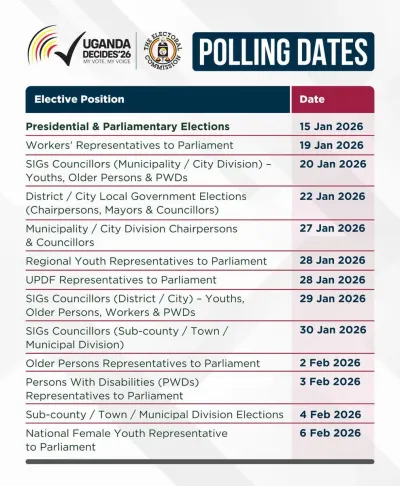

Bank of Uganda’s Mackay Aouma,. left with the Institute of Bankers GorettiMasadde
The Bank of Uganda has revealed it is soon completing regulations that will enable the smooth implementation of digital payment systems.
Speaking at the Digital Financial Literacy summit organised by the Uganda Institute of Bankers, the Director National Payment Systems, Bank of Uganda, Mackay Aomu said the Central Bank is worked with the Ministries of Finance and Justice and developed the National payments system ACT.
The national payments system act was passed by parliament and assented to by the president on September 4, 2020.
Aomu says the Bank of Uganda is now finalizing the Development of Regulations for the financial innovations operators that will enable increased access to electronic payment systems to reduce cash based payments.
“We have all kinds financial innovations in the country. We want to bring these on board through some criteria but the obvious ones are the likes of MTN, Airtel, Africell which about 10 years ago were given letters of no objection. There was no proper legal basis but now we have a law and very soon we are finalizing the implementing regulations so that we can license and create an orderly entry and orderly exit” Aomu explains
Aomu added that the law basically describes how an operator comes in, what they are expected to do and how they can leave.
Aomu expressed optimism that before Christmas of this year the implementing regulations should be ready for gazetting and at the beginning of next year 2021 they will be out for use.
He revealed that the implementing regulations will cater for operators of the payment systems, address how to get a license and how consumers can be protected.
He cites a provision in the law allows for technology incubation of financial innovations by allowing for experimentation of financial innovation under a controlled environment for a specific period of time without a license.
“So if you come up with a product, you can be allowed to demonstrate how it is going to be done, we allow you to test it, you work with the central bank say for 6 months through the testing process and then if the product is successful, it can be launched,” Aomu explained.
With the regulations, Aomu says issues of high tariffs, unfair competition, and the security concerns that negatively affect digital banking will be tackled.
Aomu stressed that the operation of digital payment systems will encourage a cashless economy which is cheaper and convenient to keep the money in an electronic system.
The Chief Executive officer the Uganda Institute of Bankers and Financial Services Goretti Masadde noted that this digital financing will see more Ugandans conveniently access banking services on their phones.
Currently only 11% of Ugandans hold bank accounts yet many more than 10 million have mobile money accounts.
Masadde however expressed concern about the fact that financial literacy regarding new payments is holding many back from embracing the new innovations.
Regarding the security on the digital platforms, Masadde expressed optimism that as more people embrace digital finance much more will need to happen in terms of security by ensuring that as more Ugandans use more of the services they are protected.
She pointed out that whereas there are so many people with mobile money accounts, how they actually use them is the question.
According to Masadde many people may have the mobile money accounts but very few of them are having business transactions via these accounts.
She stressed that many people simply receive and send money yet they can do more business transactions like bank deposits, paying bills, servicing their loans via their phones.
She acknowledges that the use of digital finance platforms is still costly which discourage many people to use the platforms.
However Masadde is optimistic that with more people getting on board and starting to use digital banking platforms the costs involved will automatically drop.
“Every time I go to a Duuka (shop) to buy something they will tell me add withdrawal charge and yet we can make it fluid so that we never have to have cash, then it will be cheaper because if I have to do ten transactions a day nobody will be asking me for a withdraw charge,” Masadde.
Josephine Olok Director Lumjo consultant which deals in software for banking explains that the digital channels not only reduce costs especially for the banks but increase financial inclusion.
Olok adds that digital financing comes with convenience to the extent that customers do not have to physically visit the banking halls thereby cutting down the risks of spreading or catching coronavirus.
Regarding the security and safety via the digital finance platforms, customers are urged to guard their transactions, guarding their information like code/pin.
On the part of insurance, Insurers have come up with innovations that match with the current digital times. For instance some of the insurance companies offer a policy covering any form of cyber threats/attacks.
Also stakeholders learnt that motorists can now pay for their motor third party insurance via the mobile money transfer account and later on access the physical sticker.













Solomon Lubambula
Leave a Comment
Your email address will not be published.